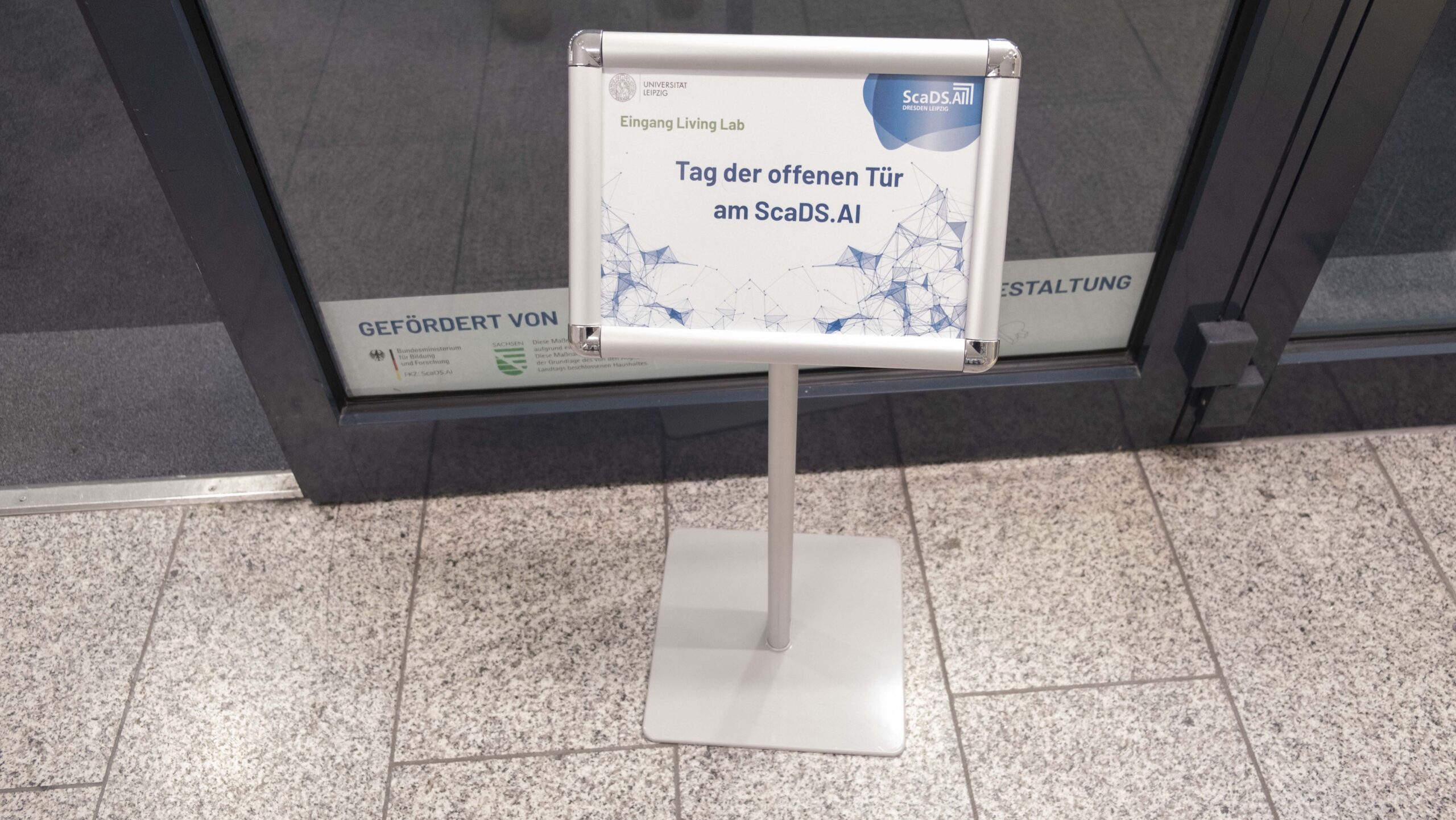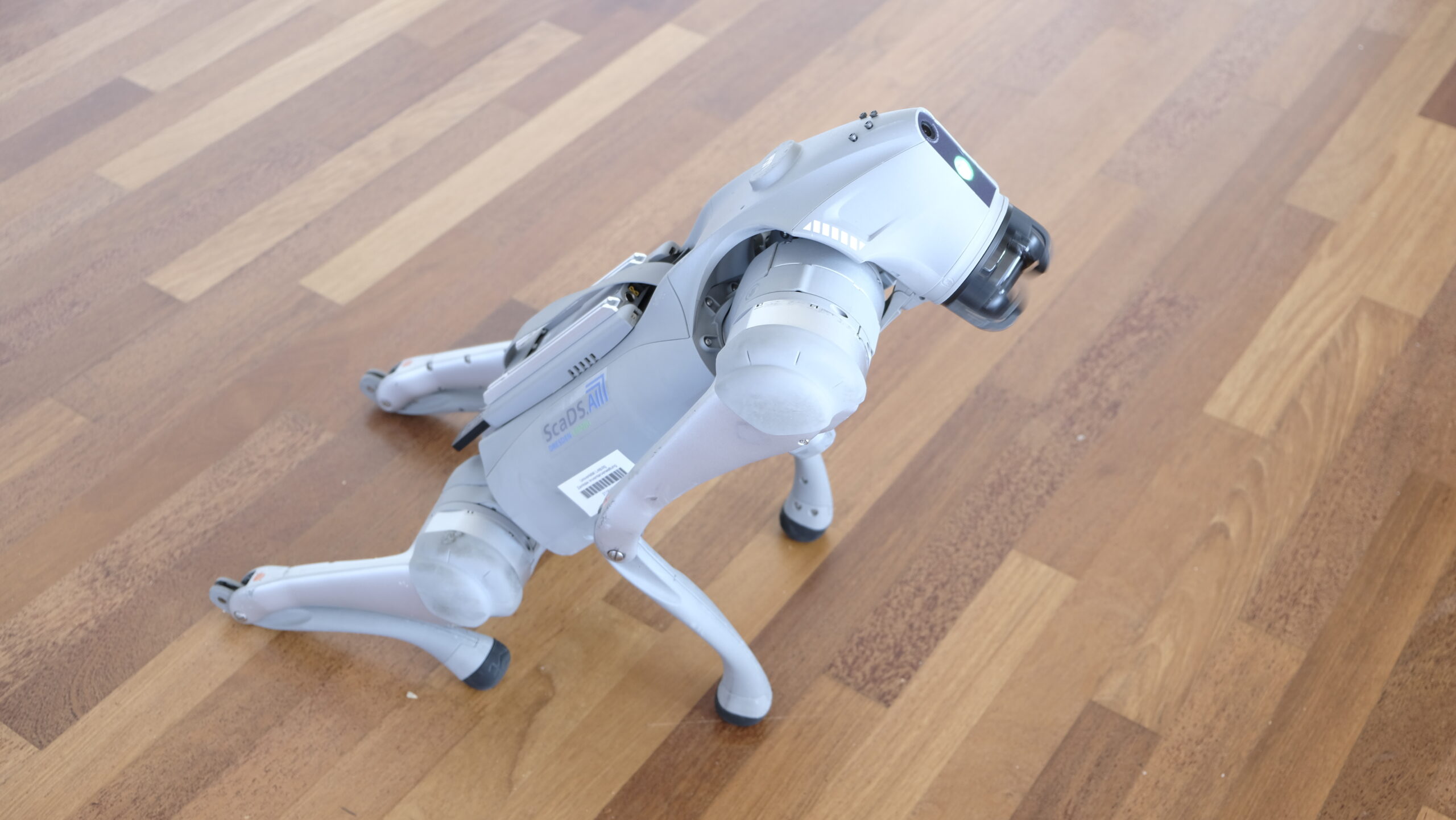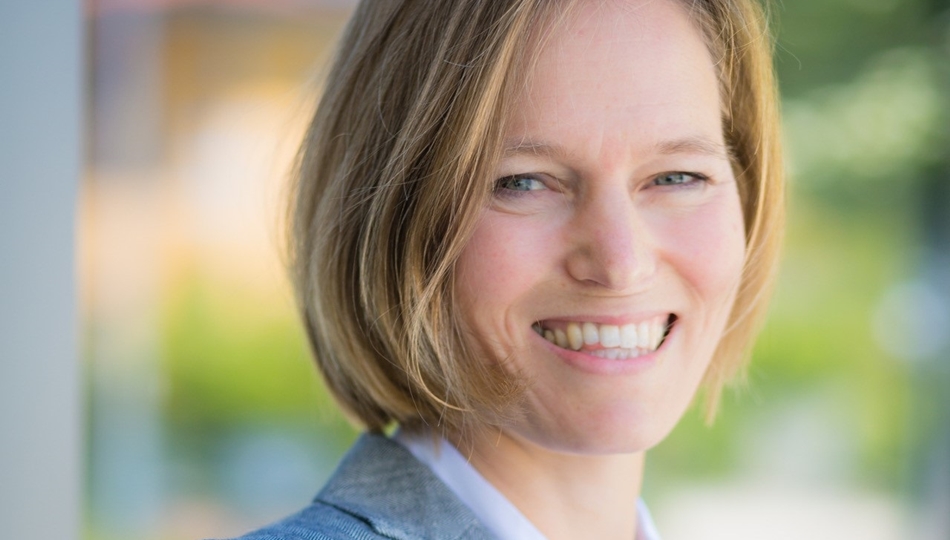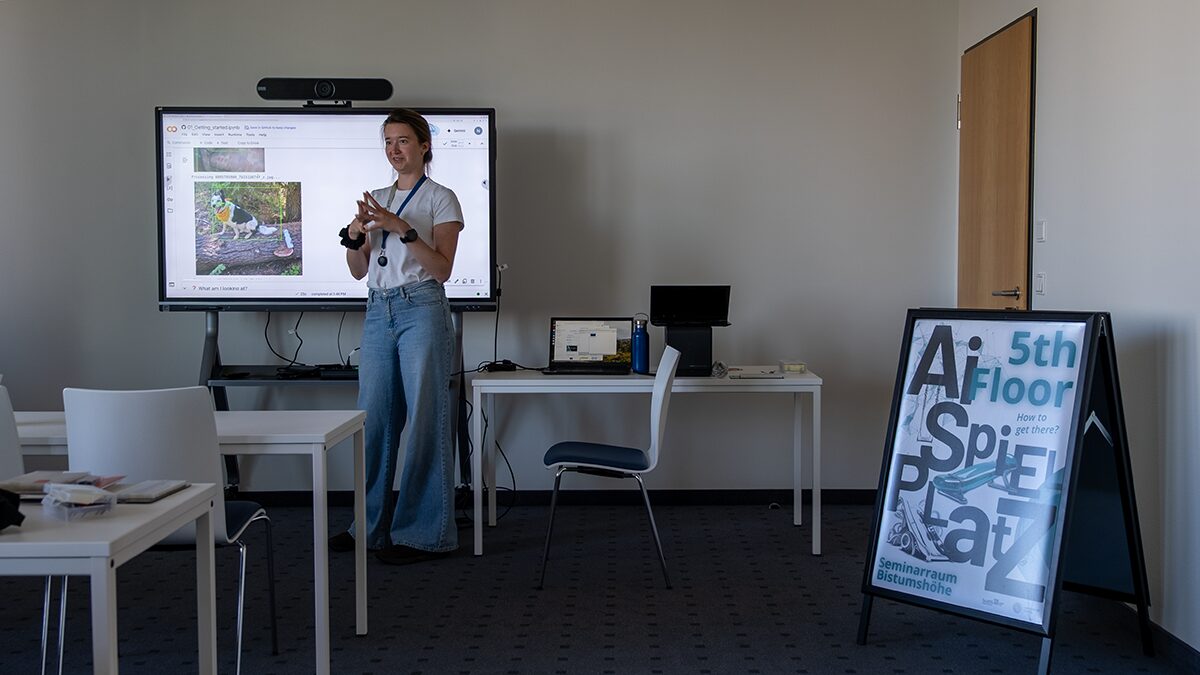
May 9, 2025
Exploring AI Together: AI Spielplatz at ScaDS.AI Dresden/Leipzig

What if you had an idea for using AI – but no clear way to get started? From May 5-9, 2025, the AI Spielplatz at ScaDS.AI Dresden/Leipzig offered just that. It was a space for students to bring early-stage project ideas to life with the support of expert mentors, insightful lectures, and hands-on sessions.
Tailored specifically for those with limited access to AI courses in their programs, the workshop combined accessible introductions to current topics, such as:
- computer vision
- working with APIs to search, classify, and compare text
- large-scale language models
- speech-to-text conversion
Furthermore it offered dedicated time to imagine, develop and implement a personal projecs. Over the course of five days, the “AI Spielplatz” became a creative laboratory for experimentation, learning, and trying out how to wrap your head around product development with AI.
Theory and practice
The workshop was designed to start with a theoretical grounding in all things AI and then, over the course of the first two days, provide more and more practical opportunities to try out the methods the students had learned.
In one of the first sessions, participants received a thorough, hands-on introduction to the Raspberry Pi, an easy-to-program mini-computer, exploring its hardware components and programming capabilities. Through hands-on exercises that demonstrated how these mini-computers can power creative AI concepts, students were able to immediately begin interacting with the world of physical computing. Participants learned how to connect sensors, set up network settings, and even play with simple machine learning algorithms. Equipped with those skills they could tackle increasingly difficult tasks over the course of the following days. This approach was designed not only to demystify the technology, but also to lay a strong foundation for integrating the hardware with the wider range of AI tools presented throughout the event.
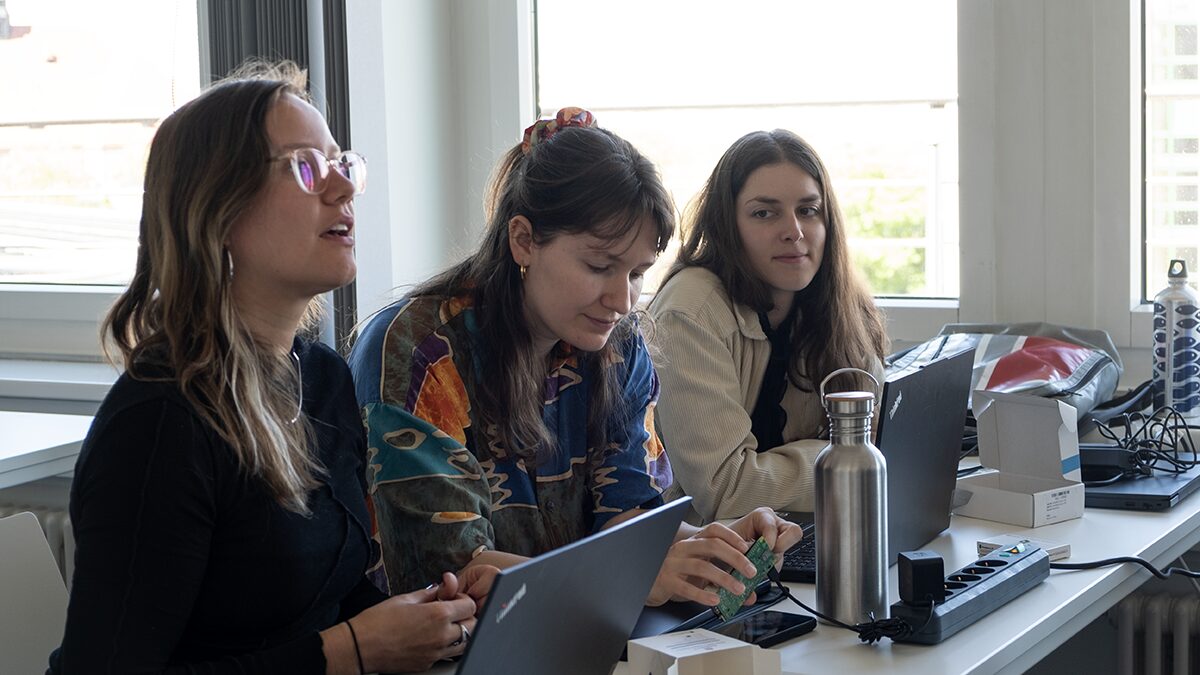
Lectures on “Computer Vision” and “LLMs”
In addition to the introductory sessions, the program included talks on Computer Vision and Large Language Models (LLMs). The first session focused on how computers learn to interpret images. Highlighting the role of RGB values and convolutional layers in processing visual input, the session dissected the process of breaking down an image into its constituent pixels and then interpreting it using statistical analysis.
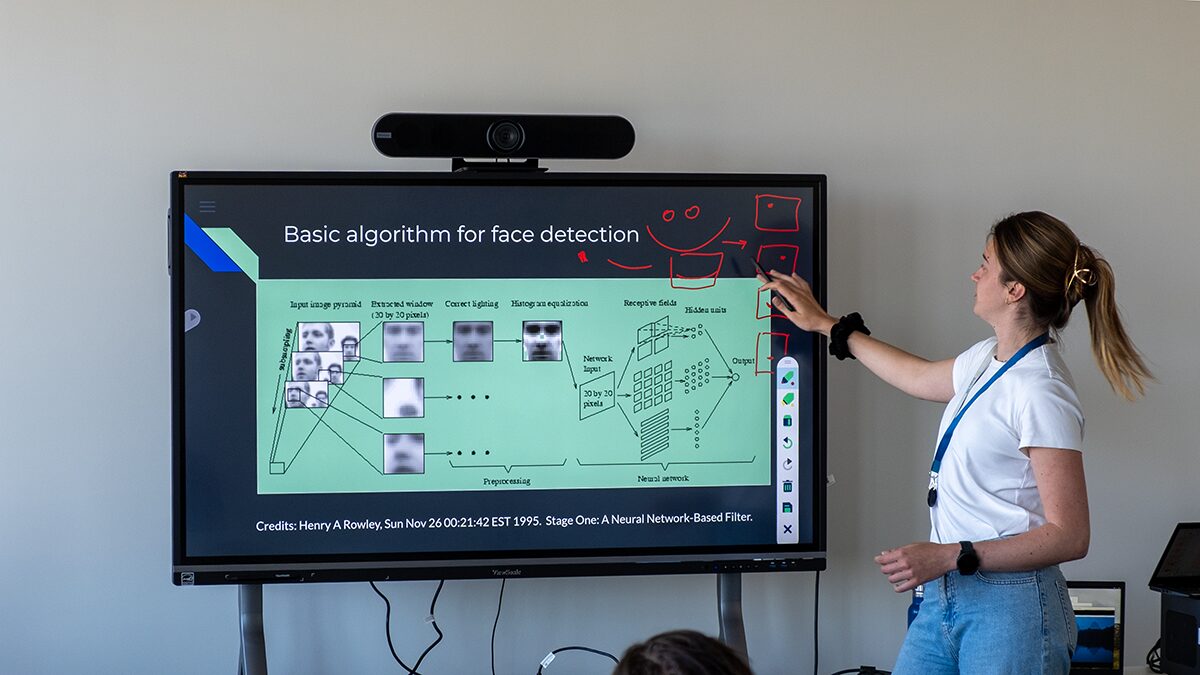
After the theoretical input, the participants were able to try out their new knowledge on the object itself. Using the Raspberry Pis together with a built-in AI-powered camera, they tested how object recognition is implemented in optical systems. In addition, the workshop included demonstrations of face and body detection using “Mediapipe”, emphasizing practical metrics such as the threshold of truth in image detection. The follow-up lecture focused on Large Language Models, how they work, their potential applications, and current areas of research. Furthermore it discussed how statistical models can analyze, understand, and interpret human language.
At the end of the second day, all participants were ready to start working on their own projects. From days 3 to 5, everyone had time to work alone or in groups with their Raspberry Pis to implement their own AI application ideas. The students had different levels of prior experience, depending on their field of study and semester. The lectures enabled everyone to be brought up to the same level so that they could develop their own ideas independently. The ScaDS.AI team was always on hand to provide support or assistance if needed.
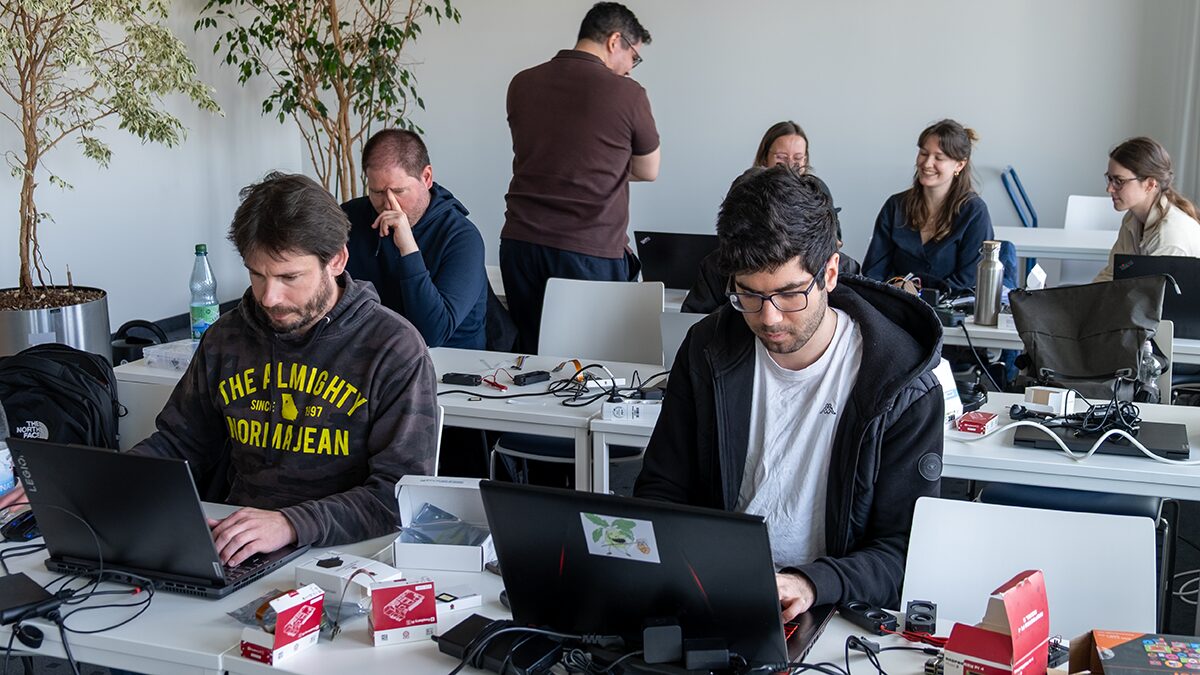
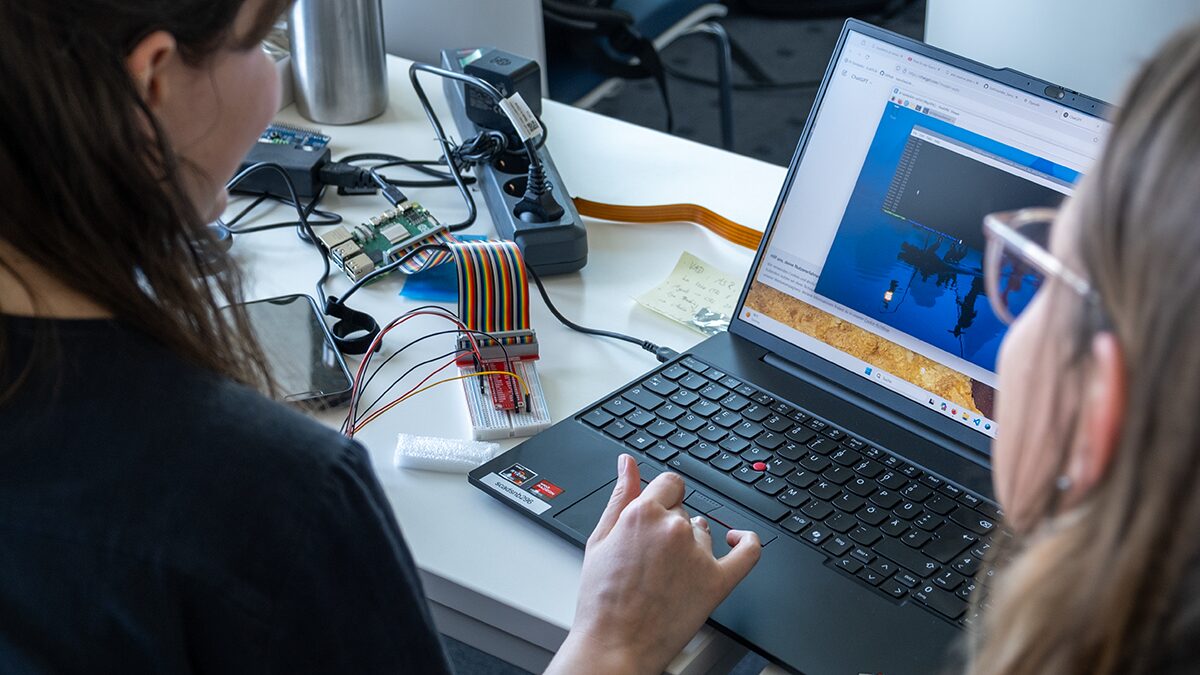
Summary and outcome
Since the release of ChatGPT in November 2022, complex terms such as LLM, computer vision, natural language processing, and AI in general have taken center stage in social discourse, making it important to give everyone the opportunity to engage with these topics in an accessible way. The “AI Spielplatz” was designed to remedy this situation by introducing interested students to the topic in a practical way and enabling them to work with AI and related applications themselves.
In the Git repository of the AI Spielpatz you will find the tutorials and slides from the lectures as well as the project reports for five of the projects that the participants submitted at the end of the event. The project ideas ranged from a voice recognition extension for a coffee machine (which is supposed to make coffee on command) to an analysis tool that searches online forums for conspiracy theories to categorize them. The AI Spielplatz team is very happy with the outcome of the projects and had an amazing workshop week.

